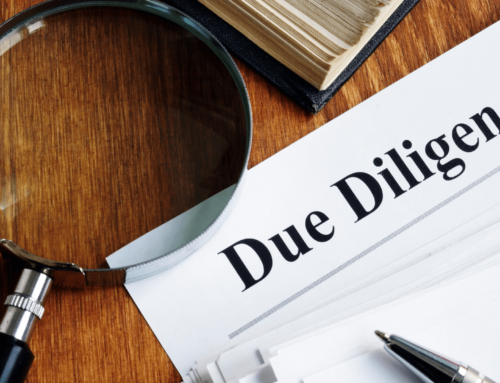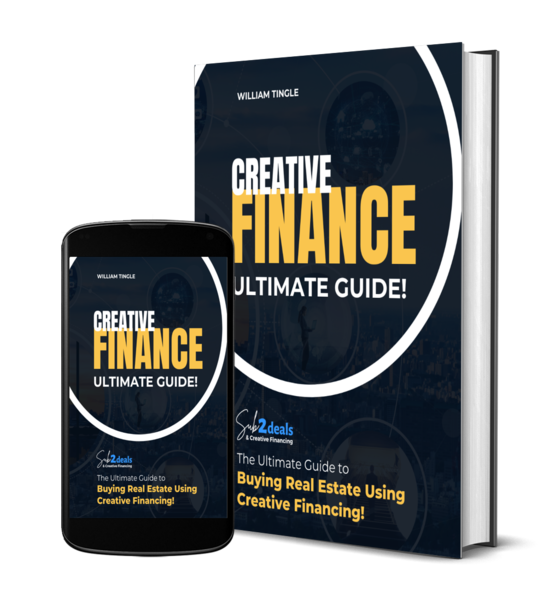Real estate investing is not the “easy money” they all make it out to be.
After my conversation with “Tyler” yesterday, I realized that maybe we should spend more time talking about the actual nuts and bolts of reality and real estate investing, and we’ll start this with the question, “What makes a deal, a deal?”
(If you are one of my Sub2Deals Coaching Group students, you know all about “Tyler” because you heard the recording of our conversation. If you arent a coaching student, let’s just say he was clueless about a deal he had under contract.)
BTW…if you want to join our coaching group…just click HERE.
Believe me, if you call yourself an investor, you need to know this and know it well because it is something I see time and time again from newbie real estate investors . . . most have no clue about what makes a deal a deal and would not know a good one from a bad one if their lives depended on it.
So many people getting into investing and especially this sub2 thing think if someone gives them a deed they have a deal and really, nothing could be farther from the truth.
Sometimes…most times, actually, if you go with this type of thinking, instead of getting a deal all you will be doing is making someone else’s problem your own.
Problems ain’t good.
So, what does make a deal a good deal?
CERTAINTY of PROFIT!
And what’s the second most important thing?
Absolutely nothing.
There is NO second most important thing. The Certainty of Profit is the ONLY thing that matters.
You’d think that would be a given, but it’s not. It’s not because investors seem to always get it in their heads that the goal of this real estate investing thing has something to do with houses (and getting a bunch of them under their control).
Trust me, that ain’t the goal.
What I absolutely need you to do right now is to separate these two concepts. One, the notion of PROFIT, and two, the notion of BUILDING A REAL ESTATE EMPIRE.
They are two completely different things and at this moment in your investment career, especially if you’re just starting out, they simply cannot peaceably co-exist.
How can this be, you wonder?
Don’t be a deed collector. Be a cash collector.
Sub2 isn’t a magic wand you can wave and turn a pile of chicken poop into chicken salad. Sub2 is a favorable (sometimes) method of acquisition. A form of financing. A way to buy property without banks. Nothing more.
Let’s think about Tyler. When I spoke to Tyler, he couldn’t really answer one question about that property’s financials except for the interest rate on the loan and the payment amount. Even that was suspect because the payment amount doesn’t match what it should be for a loan with the terms he quoted on a 50-year-old brick rancher in Wichita where taxes ain’t that high.
He didn’t know the amount owed…the amount needed to cure the default, the amount of “back taxes” he claimed the seller had and needed cash to settle from the deal, and because of this, he most certainly couldn’t know if there was PROFIT in it for him and his partner.
As a result…the chances of Tyler being able to move this property and help his seller and make a profit are virtually ZERO and that is too bad. Too bad for the seller and too bad for Tyler and his partner.
How could he have fixed this? By knowing the things investors need to know to have CERTAINTY.
1. Ability to Know Value (What’s the thing worth?)
When you make contact with a seller, you should have a way to know instantly what the value of the property they have for sale is. MLS access, PropStream, general knowledge of the area…any of this works but have a way, some way to know what the property is worth within a reasonable amount. It doesn’t have to be exact but it does need to be close.
For example, we had a guy post in the forum yesterday about sub2 deals he has to assign. I asked him what he had in a state that interested me and he replied with a few details about a property stating that the value was 280k.
After more discussion in private, he said a couple of agents had valued it at between 300-335k. The loan balance was 199k and he wanted a 60k finders fee.
The house sold for 219k 12 months ago and both PropStream & Zillow had it valued at 235k.
This guy obviously had no clue as to the true value of the property and has no chance of selling it with his current numbers.
The value of the property in question is the basis, the foundation, the start of what you must have to determine if there is a potential profit here for you. You need to be able to determine this for this is the only way you can have certainty and certainty is what lets you sleep at night.
The ability to determine this number is critical. If it is off significantly, nothing else matters.
2. Ask the Right Questions – (Get the story, silly!)
When you are talking to the seller, ask the questions you need to ask to know the things you need to know to have certainty that there is a deal here.
We start out trying to get the story because the deal is in the story.
- Why is the seller selling?
- How soon do they need to move or get the deal closed?
- Is there anyone else on the title?
We want to know the story because the story gives us a snapshot into a seller’s motivation, the speed at which the deal has to move, and how many people we ultimately have to get on board and work with.
3. Ask the Right Questions – (What’s up with the financing?)
There are certain things you MUST know if you are going to have certainty on whether a deal has profit for you. The seller will have to answer these questions for you and if they refuse, there isn’t really anywhere to go from there.
YOUR seller, the one you want to be speaking with, will usually answer these questions with little to no hesitation. The ones who will not, need a little more time in the oven.
*Is there a mortgage in the property? If so, how much is owed?
This question will tell you if our way of buying, sub2, is even a possibility. If there is no mortgage you will be looking at a cash offer to the seller or a straight seller finance offer.
It is also important for another reason. If the terms of the loan are such that there would be no monthly cashflow either with renting or selling with seller financing, there MUST be equity so you can retail the property to make a profit.
*How much are the monthly payments? Does the payment include taxes and insurance? If not, how much do they run each month?
These questions are important because if your intent is to hold the property in any way, either to rent or sell with seller financing, you must know the amount of the monthly payment to ensure there will be the cash flow you require for your deals.
You would not believe how many investors I talk to wanting help analyzing a deal who don’t even know if the payment amount they have is PI or PITI. In states like CA or TX or NY, where the taxes can be as much as the PI payment, this is HUGE. Know the payment and what it includes.
*Is the loan a fixed rate or adjustable rate?
Nothing kills certainty more than a loan with a movable interest rate. I am not saying these are automatically a no go. What I am saying is that adjustable-rate loans will adjust and with rates where they are today, most aren’t going anywhere but up.
What that means to you is less cashflow almost certainly at some point in the future.
If the loan you are considering taking over has an adjustable rate, know the caps and limits. This will let you know if there is a lifetime limit on how much it can go up and a limit on how much it can go up at one time. Most have this feature but don’t assume yours does. KNOW what it has. Again, certainty is what we need.
*What is the term on the loan?
Knowing this will make some sense out of what appears to be a high monthly payment. Maybe their loan is on a 180-month term instead of a 360. This will lessen your cashflow monthly but make a big difference on the backend profit.
*Is there an HOA? If so, how much are the monthly fees?
I hate HOAs. They control what you can do with your property, can raise their fees with a simple vote of members, can control improvements you want to make or deny them altogether, and more. They have a TON of power over your investment and their costs can be expensive.
Some HOA fees are small. I have seen some that were only $20 a year. I have also seen some that were high…really high. We looked at a property this week that had a $600 a month HOA fee. I would hate to find that out after I bought the house.
Important information to know before you take a deed, wouldn’t you say?
*Are the payments current? Is the loan in forbearance? If so, how much longer does the forbearance have? Has the lender offered you the option of putting the forbearance onto the end of the loan?
Today especially, these are important questions. With almost 1 in 10 loans in some sort of forbearance, chances are you will run into this and you need to be able to plan what you will do depending on your exit strategy.
Even if the forbearance has to be paid once it ends, if you are selling with seller financing, your buyers down will almost always cover the amount needed to bring things current.
If you plan on renting, you may have to come out of pocket but that doesn’t have to be a deal killer. You could use private money or some other form of financing to pay this amount. The important thing is you know what to expect so you can plan accordingly and have certainty.
*What is the condition of the property?
This is important because if the property needs work, this work will have to be paid for. Most likely, by you.
*Does it need work before it can be occupied or does it need simple things like updating which do not affect habitability?
On the phone, I have to trust that what the seller is telling me about the financing, condition of the property, and so on is true. The due diligence process will uncover deceptions or “mistakes” the seller made in answering your questions.
Like that lady in foreclosure who called me at midnight the night before the foreclosure auction wanting to know if we could get the deal done before the auction in the morning. She conveniently “forgot” about 7 jr mortgages she had on the property.
No, we couldn’t get that one done in time.
*What are you needing to get out of the property?
If the seller is wanting cash, we need to know it.
Since you already have the story, you know the value and what is owed, you probably already have a good idea of what the seller is going to be looking for in the form of cash or equity.
Yes, some will be unrealistic but most know their situation and are just looking for some type of relief.
If they need cash to take care of something, moving, back taxes, some sort of debt they want to satisfy, it helps to know so you can offer other solutions if available.
These are the basic things you need to know when speaking to a seller and putting together the things you need to know to have certainty on a deal.
While speaking with a seller, they may tell you things that warrant further questioning but these questions will enable you to have the facts you need to make a pass or play call on a deal.
If Tyler had asked these questions from his seller, he could have answered any questions I had and his seller probably wouldn’t go to foreclosure in a few months like almost certainly is going to happen. Certainty for Tyler might have saved his seller.
Facts…knowing and verifying the facts are what make certainty possible.
When you speak to a seller…get the facts…verify the facts…get certainty…and make money.
Want the BEST subject to course ever written? That would be The Ultimate Sub2 Guidebook. Get it here!
by: William Tingle
William Tingle
www.Sub2Deals.com
(c)2020 All Rights Reserved







